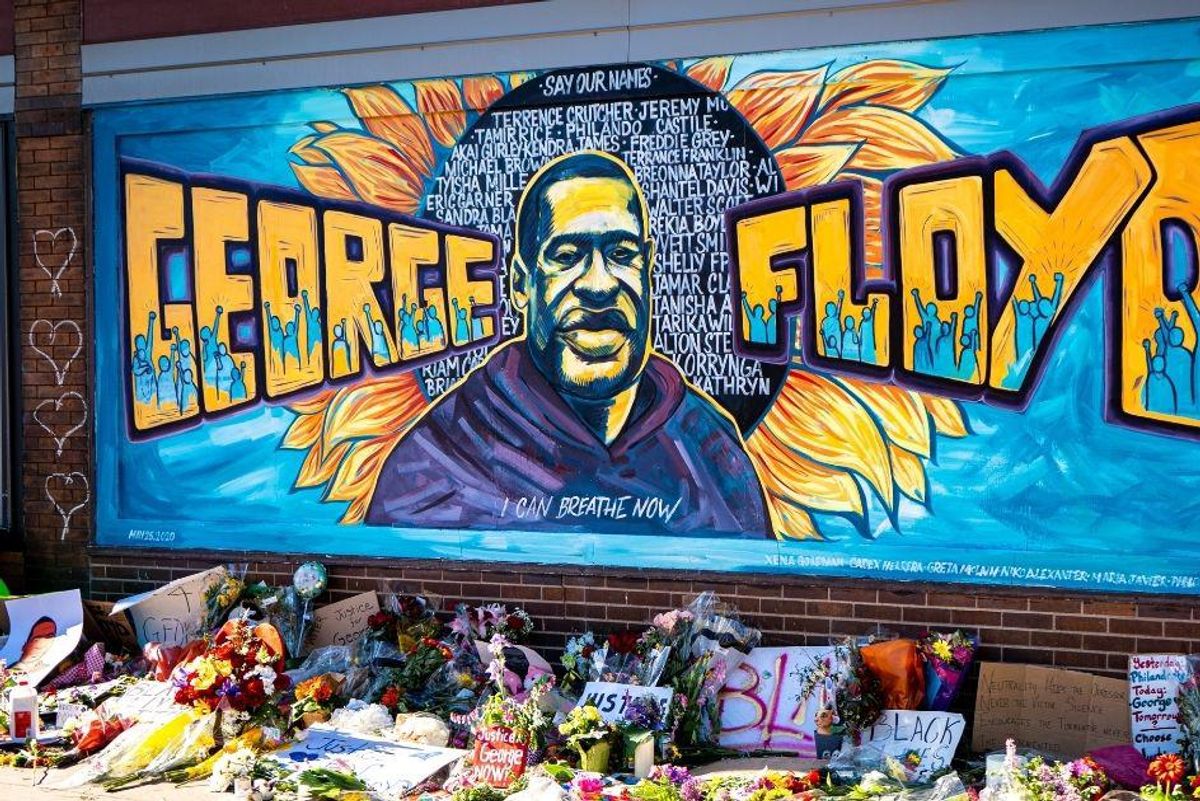
Last May, the whole world reacted to the murder of George Floyd caught on video by a quick-thinking teenage bystander. We watched the minutes tick by as Derek Chauvin pressed his knee into Floyd’s neck. We watched Floyd tell the officers he couldn’t breathe and then call out for his mother. We watched him stop talking, stop moving, stop breathing while Derek Chauvin kept on kneeling with his hand in his pocket.
While most of the attention has been on Chauvin’s actions in that horrifying video, there were three other police officers involved at the scene.
Three other officers who participated in either helping hold Floyd down or watching as it happened. Three officers who witnessed their colleague murder a man in plain sight, with bystanders begging them to intervene, and doing nothing to stop it. Three officers who didn’t even try to resuscitate the man who had stopped breathing right in front of them.
The accountability of those officers has been in question since Derek Chauvin was found guilty of second-degree murder, third-degree murder, and manslaughter in the George Floyd case. Now, a federal grand jury has indicted all four officers, including Chauvin, for willfully violating George Floyd’s constitutional rights.
Derek Chauvin, Thomas Lane, J. Alexander Kueng and Tou Thao have been charged with depriving Floyd liberty without the due process of law, which, according to the indictment, “includes an arrestee’s right to be free from a police officer’s deliberate indifference to his serious medical needs.”
The indictment lays out how the officers violated that right:
“Specifically, the defendants saw George Floyd lying on the ground in clear need of medical care, and willfully failed to aid Floyd, thereby acting with deliberate indifference to a substantial risk of harm to Floyd. This offense resulted in bodily injury to, and the death of, George Floyd.”
In addition, Derek Chauvin has been charged with the use of unreasonable force, and two of the officers, Tou Thao and J. Alexander Kueng, have been charged with willful failure to intervene in stopping Derek Chauvin’s use of unreasonable force.
All three counts fall under “Deprivation of Rights Under Color of Law,” which, according to the Justice Department “is punishable by a range of imprisonment up to a life term, or the death penalty, depending upon the circumstances of the crime, and the resulting injury, if any.”
U.S. Attorney General Merrick Garland recently announced an investigation into the Minneapolis Police Department to determine whether there is a pattern or practice of constitutional rights violations in the way policing is conducted in the city.
The Minneapolis police said in a statement that MPD police chief Medaria Arradondo “welcomes this investigation,” will fully cooperate with federal prosecutors, and “understands that the intent of this inquiry is to reveal any deficiencies or unwanted conduct within the department and provide adequate resources and direction to correct them.”
Garland vowed during his confirmation hearing that civil rights would be a primary focus of the Department of Justice and appears to be making good on that promise. There are also legislative changes in the works with the George Floyd Justice in Policing Act, a bill passed through the House of Representatives but not yet taken up by the Senate, which would limit the unnecessary use of force and make it easier to prosecute police officers accused of misconduct.
While there is much to debate about the future of policing in the U.S., there is little question that something needs to change in our criminal justice system. Derek Chauvin’s conviction of George Floyd’s murder was one big step toward greater accountability for police brutality. We’ll see what happens from here, but the indictments of these officers offer additional hope that police will not be able to violate people’s rights and do irreparable harm with impunity.
